John Marx and Absinthia Vermut create virtual experience of Burning Man pavilion
With Burning Man 2020 taking place in virtual format, architect John Marx and artist Absinthia Vermut have created a digital tour of the museum-like pavilion they had designed for the event. Marx and Vermut created the digital alternative of their project Museum of No Spectators after Burning Man cancelled its Black Rock City event this The post John Marx and Absinthia Vermut create virtual experience of Burning Man pavilion appeared first on Dezeen.

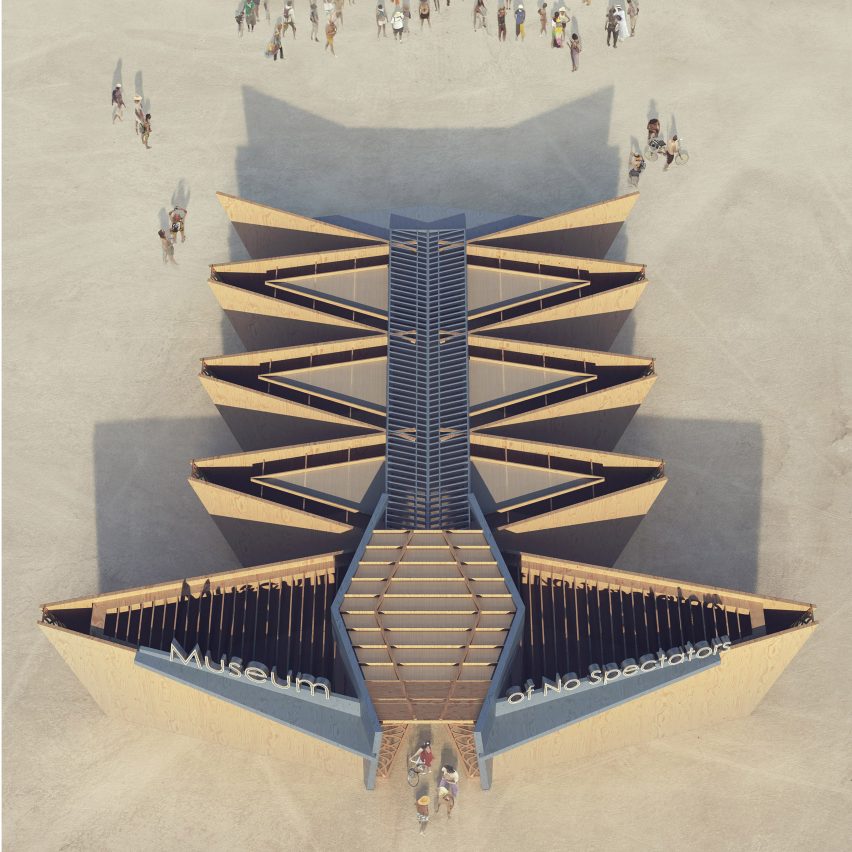
With Burning Man 2020 taking place in virtual format, architect John Marx and artist Absinthia Vermut have created a digital tour of the museum-like pavilion they had designed for the event.
Marx and Vermut created the digital alternative of their project Museum of No Spectators after Burning Man cancelled its Black Rock City event this year and replaced it with a virtual alternative due to the coronavirus pandemic.
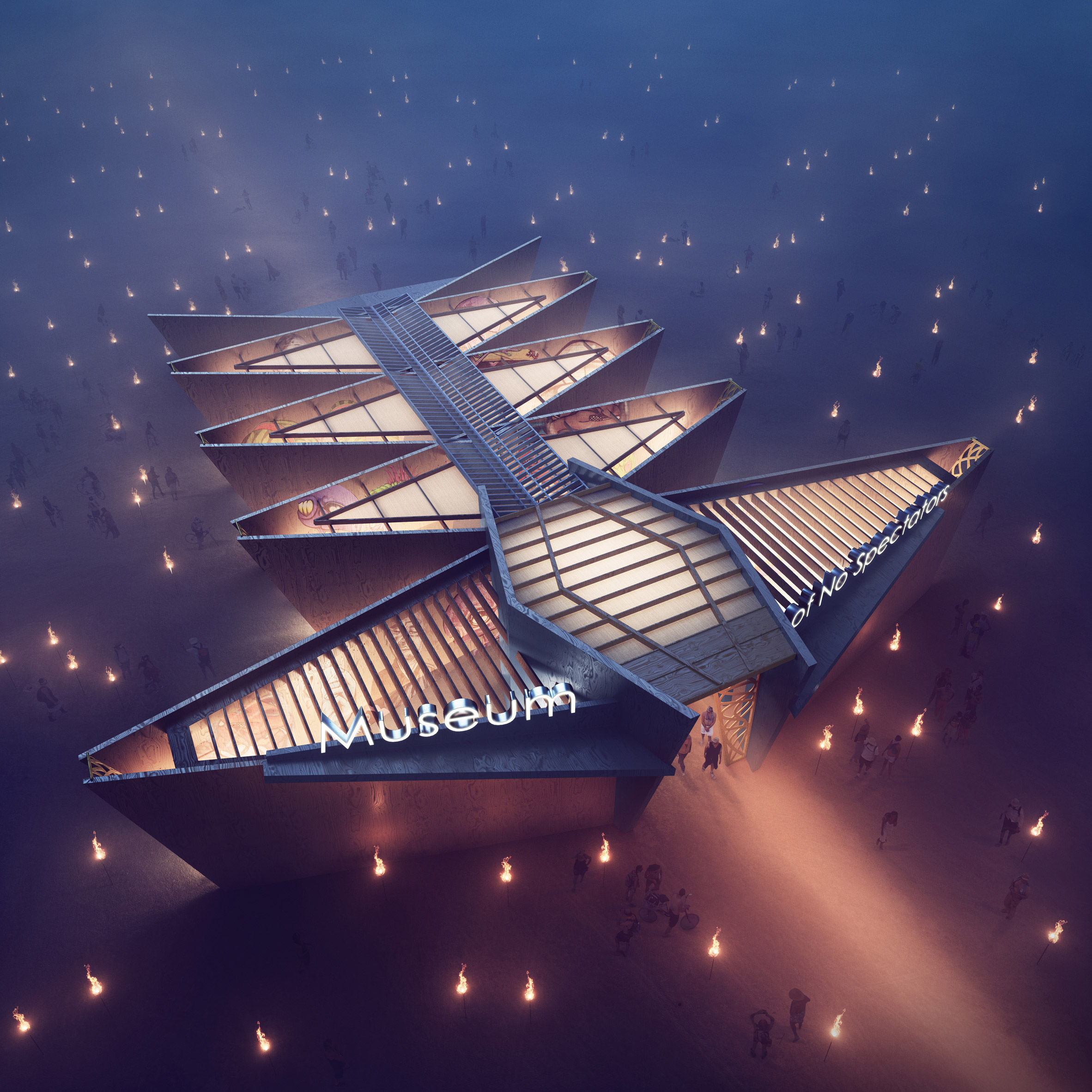
The virtual experience offers a preview what the structure would look like, by clicking arrows to view and move through its interiors and view artwork as they would be arranged in the physical pavilion.
The tour shows that Museum of No Spectators is composed of eight triangular volumes in a fan shape, which host eight gallery spaces and a gift shop that doubles as an art studio inside.
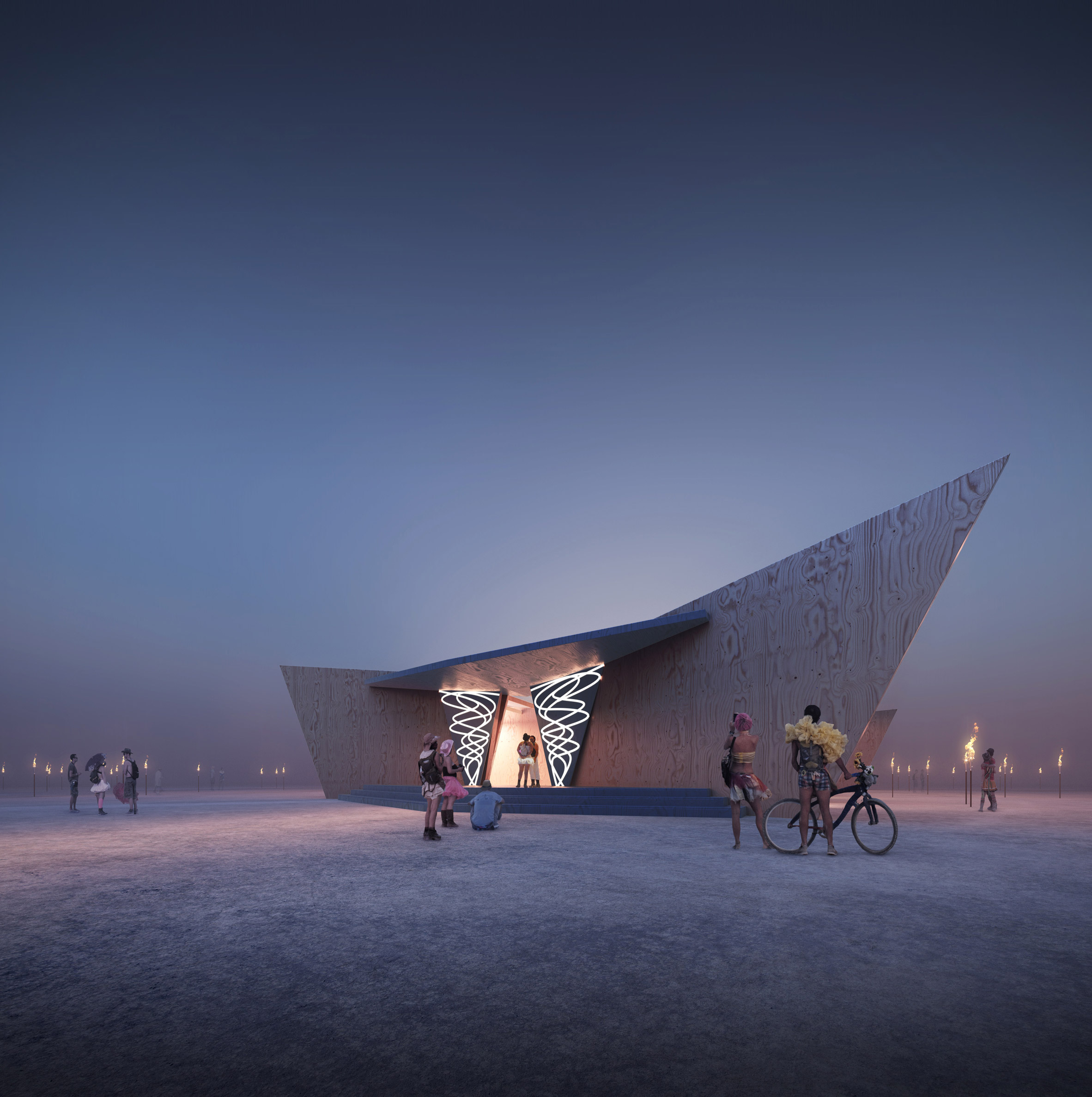
Wood and diamond-shaped panels are laid across the top of the pavilion to form its roof, with natural light streaming through the gaps to project a linear pattern on the walls and floors.
Its name Museum of No Spectators, flanks a rectangular doorway outfitted with wood latticework, also used to decorate walls in each of the gallery rooms.
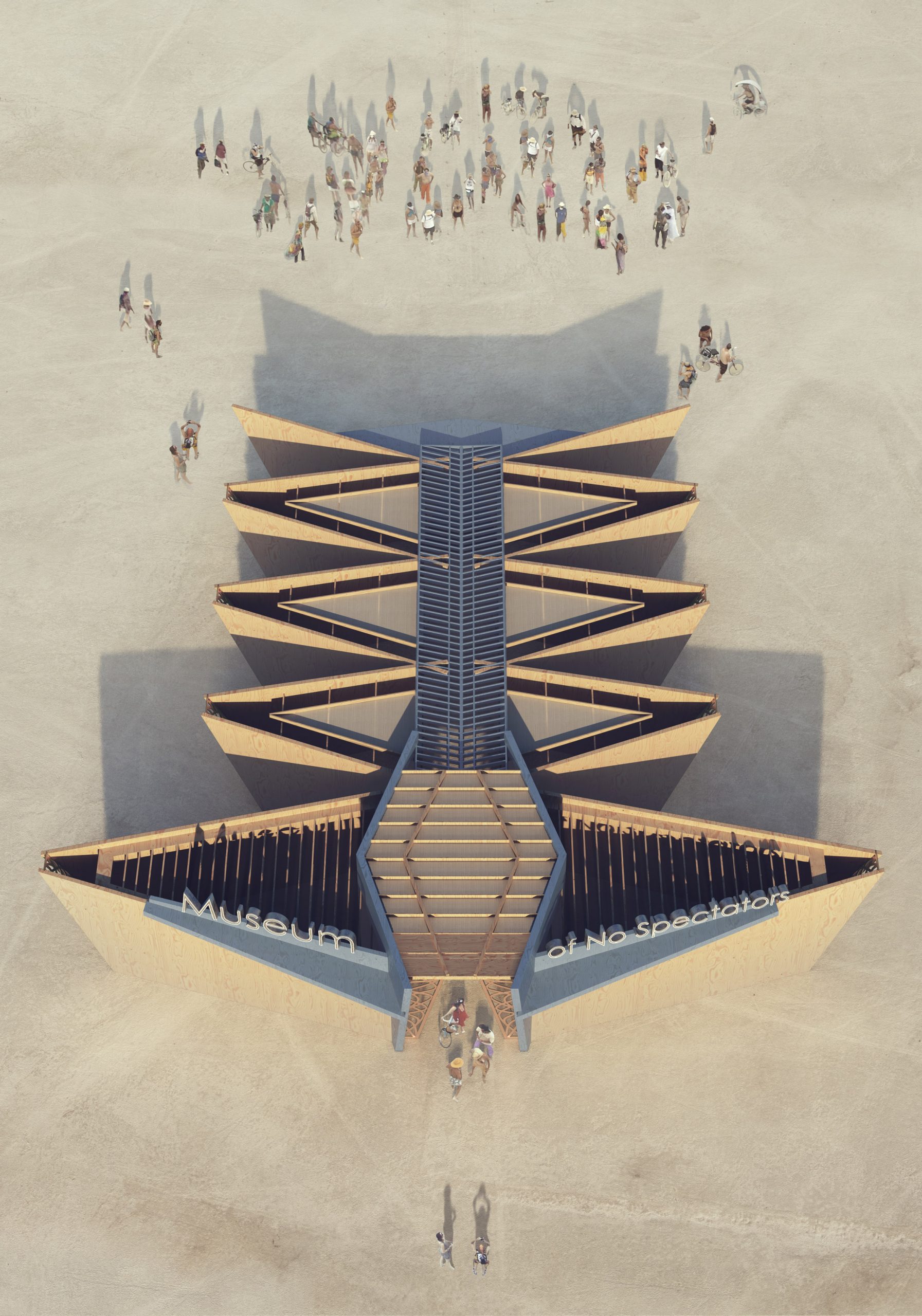
Users can also view Marx's pavilion from the 2019 festival, Andromeda Reimagined, a pyramid structure with celestial cutouts designed to subvert the narrative of the ancient Greek tale of Andromeda.
Marx and Vermut are aiming to build the pavilion for Burning Man 2021. As an in-person experience, it is intended to be an alternative to traditional museum settings and offer an inclusive and interactive space that meets Burning Man culture and values.
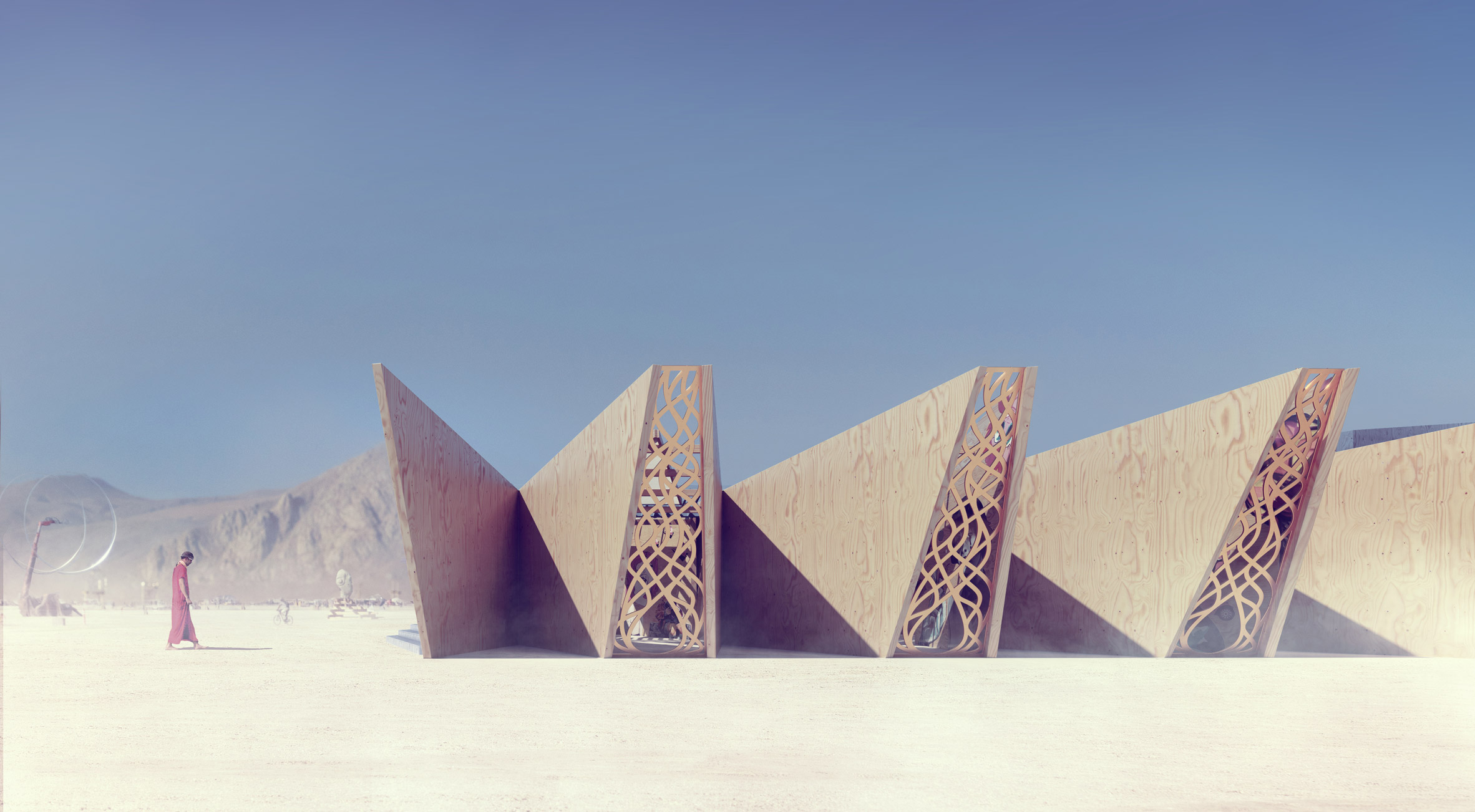
"Burning Man as an event invites you to experience art as not just something you might passively appreciate, but as a joint enterprise that unleashes your own creative potential," Marx said.
"This is why Absinthia and I thought that a museum on the playa that encourages all Burners to make works of art in an uncurated and spontaneous environment is an ideal way to reconsider what museums can be."
"It also raises interesting questions around the range of cultural inclusion and how this might impact society in general," he added.
Visitors would enter into the "Gifting Shop" where they would be asked to create an object using available art supplies before proceeding into the museum. Built-in shelvings, as shown in the virtual showcase, would wrap around the perimeter of the room to form display areas for showcasing their pieces.
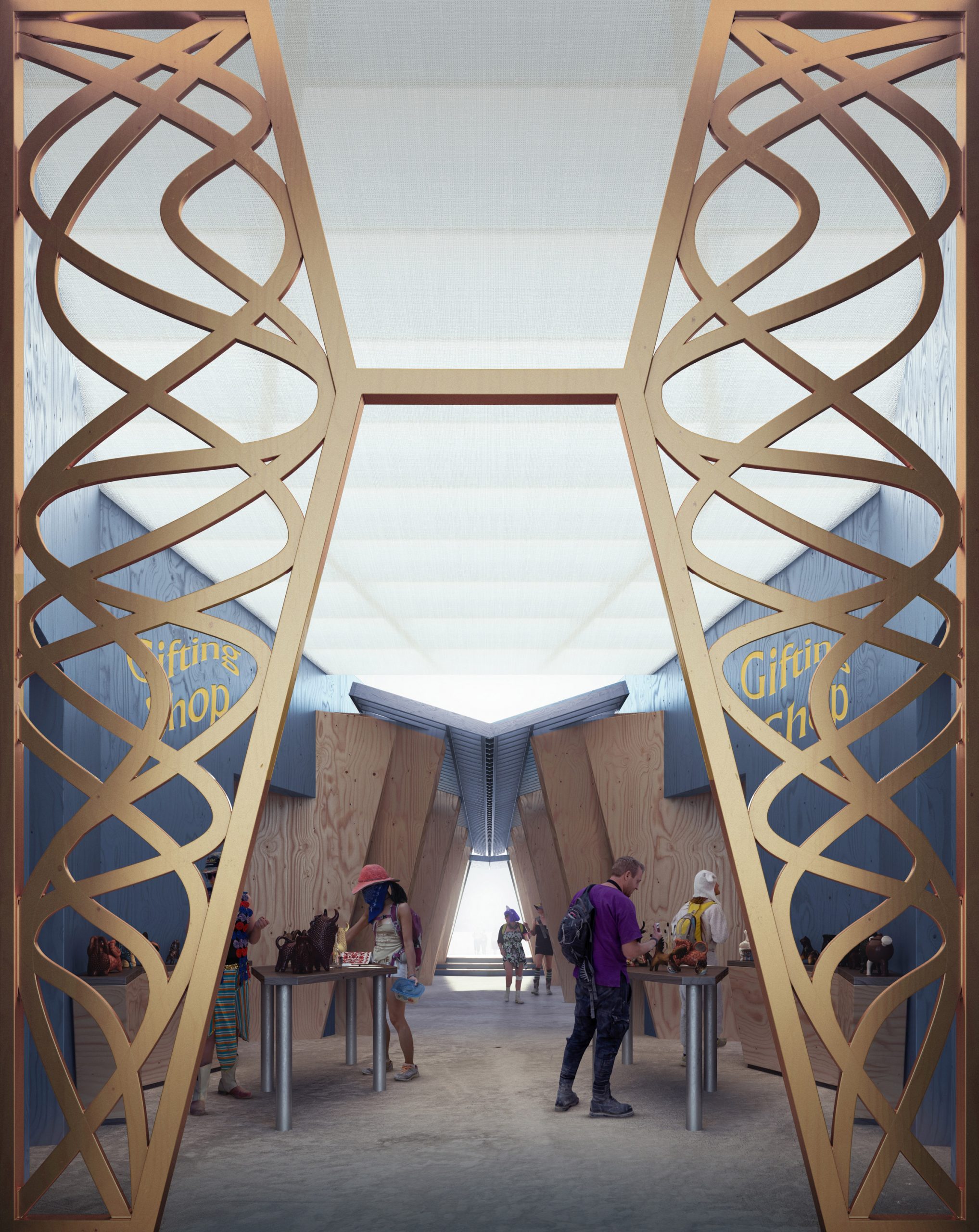
Revellers would also be encouraged to create their own art to decorate the walls or add onto existing works. There are also plinths in several of the spaces for exhibiting three-dimensional or sculptural art pieces.
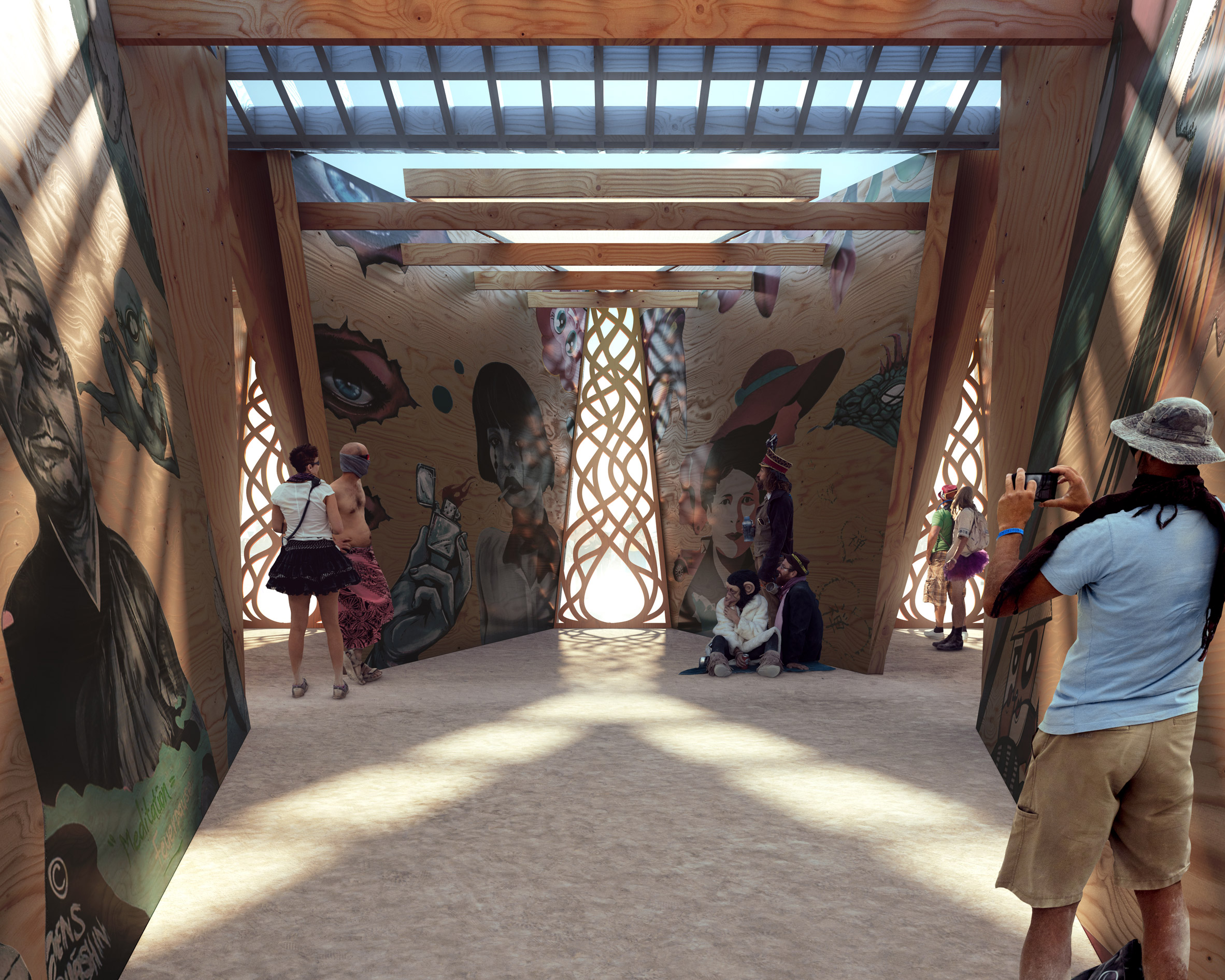
Burning Man's virtual event will take place from 30 August to 6 September.
Following the announcement the annual festival in Black Rock City, Nevada would be hosted digitally, architect Arthur Mamou-Mani put out a call for game designers to help him virtually create the timber amphitheatre he planned to build at the festival.
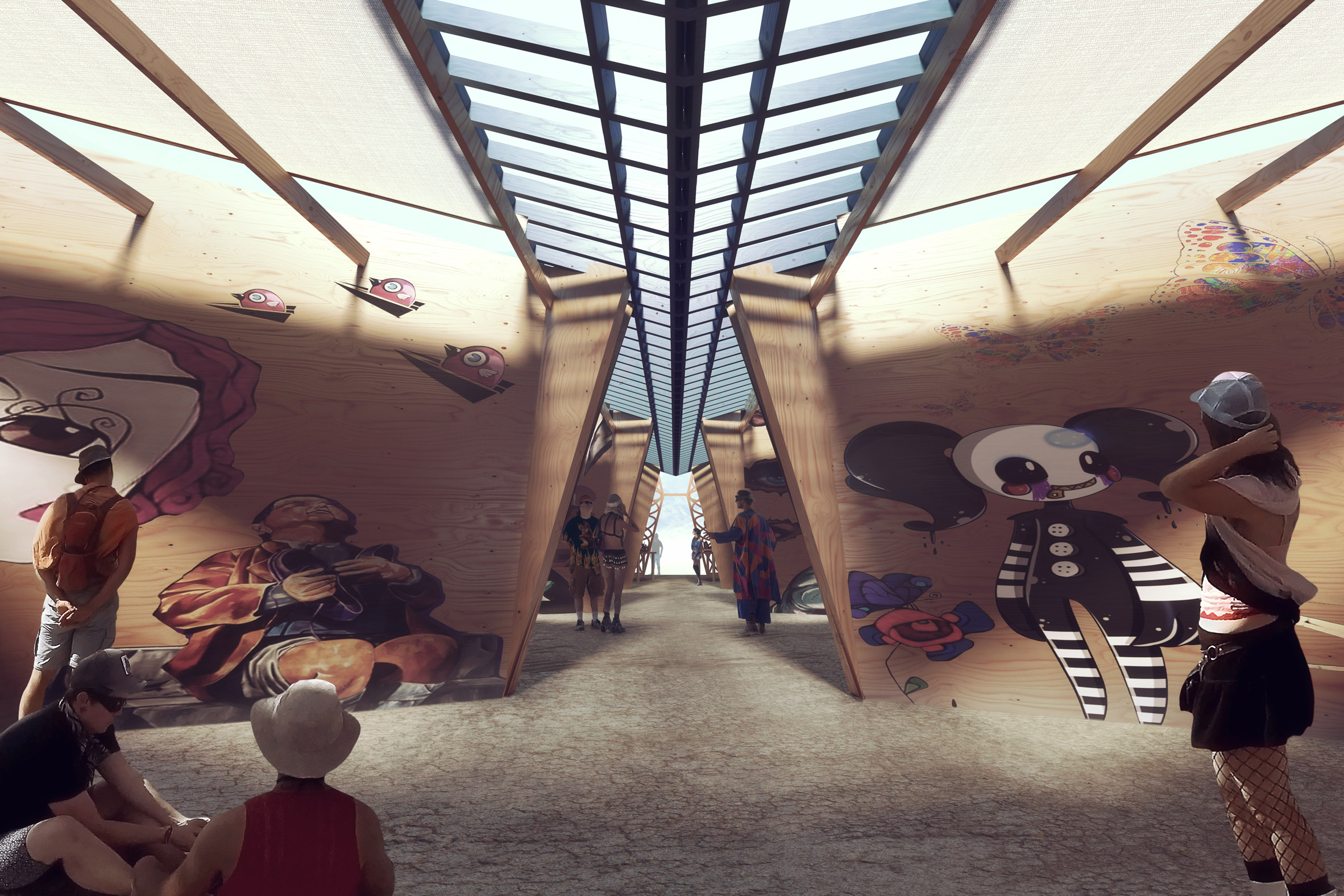
Mamou-Mani spoke with Dezeen, as part of Virtual Design Festival, about the project and shared a virtual-reality tour of his design Catharsis.
Other proposed designs for Burning Man 2020 include an eight-pointed structure by Renzo Verbeck and artist Sylvia Adrienne Lisse that would have served as the centrepiece of the event to be burned on the final night.
The post John Marx and Absinthia Vermut create virtual experience of Burning Man pavilion appeared first on Dezeen.
